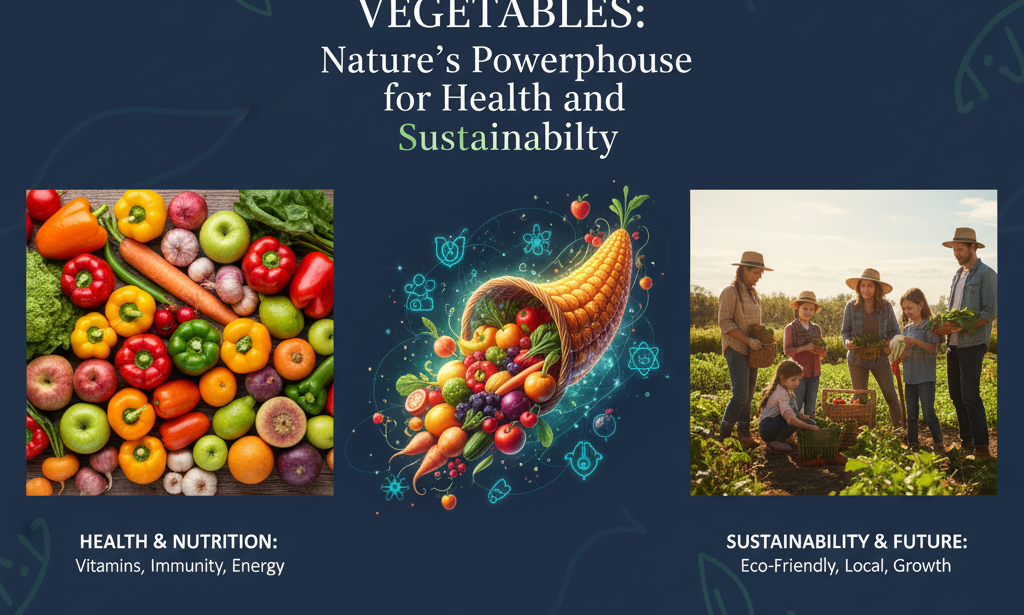Fruits and vegetables are more than just food—they are a foundation of good health, cultural identity, and sustainable living. In today’s world, where processed food dominates supermarket shelves, the call to “eat more greens” is stronger than ever.
In 2025, people are rediscovering the value of fresh produce, both for their bodies and the planet.
1. Health Benefits of Fruits and Vegetables
Fruits and vegetables are packed with vitamins, minerals, antioxidants, and fiber. Regular consumption is linked to:
Reduced risk of heart disease, diabetes, and certain cancers.
Stronger immune systems.
Better digestion and gut health.
Healthy skin and energy levels.
Experts recommend at least five servings a day to maintain a balanced diet.
2. Economic Value of Fresh Produce
Beyond health, fruits and vegetables contribute significantly to the economy. From small farmers to global export markets, the produce industry supports millions of jobs.
Tropical fruits like bananas, mangoes, and pineapples are major export goods.
Vegetables such as tomatoes, onions, and potatoes are staples in global diets.
Local farmer’s markets create income opportunities while supporting community health.
Investing in this sector also supports food security worldwide.
3. Sustainable Farming Practices
As climate change affects agriculture, sustainable farming of fruits and vegetables is becoming critical.
Eco-friendly practices include:
Organic farming without chemical pesticides.
Hydroponics and vertical farming to save water and land.
Crop rotation to keep soil fertile.
Reducing food waste through better storage and distribution.
Sustainability ensures that fresh produce remains available for future generations.
4. Modern Consumption Trends
In 2025, consumers are more experimental and health-conscious than ever. Trends include:
Plant-based diets gaining popularity. Smoothies, juices, and meal-prep boxes featuring fresh produce.
Exotic fruits becoming accessible worldwide.
“Farm-to-table” movements connecting farmers directly with consumers.
This shift reflects a growing desire for natural, whole foods over heavily processed alternatives.
5. Tips for Eating More Fruits and Vegetables
It can be easy to overlook fresh produce in busy lifestyles. Here are simple ways to add more to your daily diet:
Start breakfast with fruit smoothies.
Replace snacks with apple slices, carrots, or cucumbers.
Add at least one vegetable to every main meal.
Try seasonal, local produce for better taste and affordability.
Conclusion
Fruits and vegetables are the cornerstone of a healthy lifestyle and sustainable future. From boosting personal well-being to supporting global agriculture, their importance cannot be overstated.
By making smarter choices—eating more produce, supporting local farmers, and encouraging sustainable farming—everyone can contribute to a healthier world.



You must be logged in to post a comment.